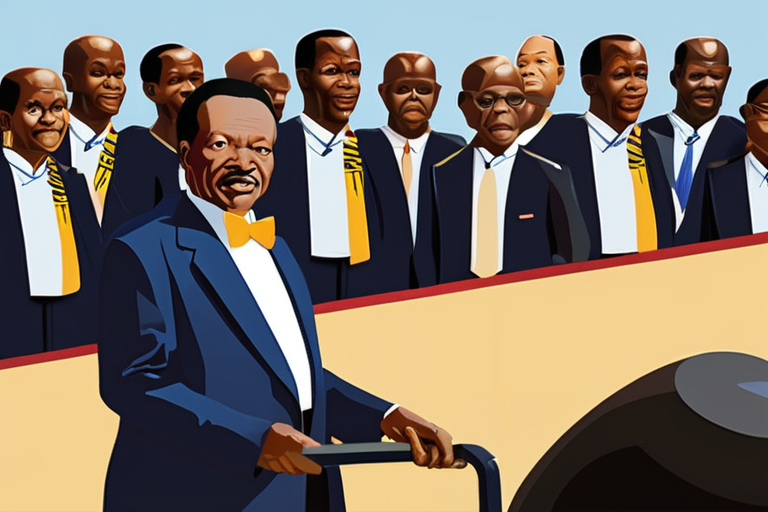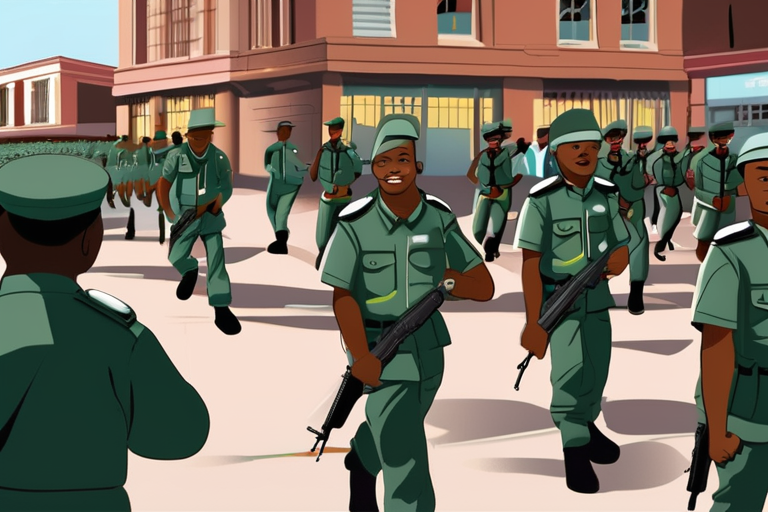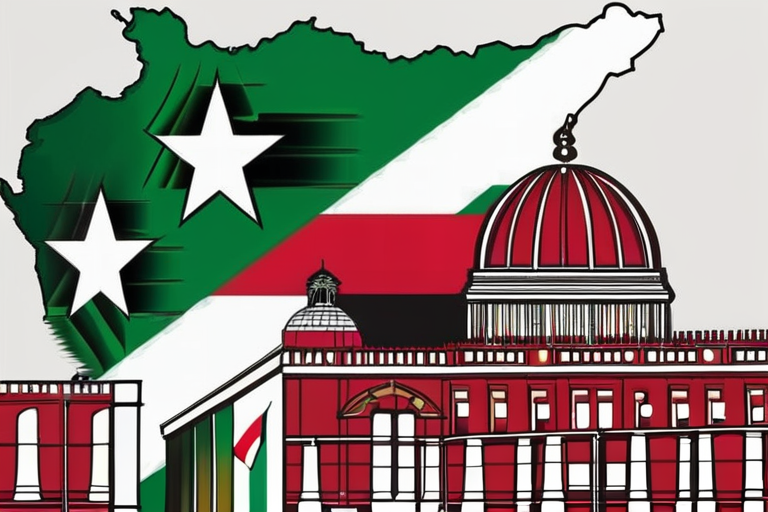Africa's Oldest Leader Defies Age: A Cultural Phenomenon?
JOHANNESBURG, South Africa - Paul Biya, the 92-year-old President of Cameroon, has shattered the myth that age is a barrier to leadership. Despite being the world's oldest non-royal leader, he has announced his intention to run for re-election in October 2025.
Biya's decision to defy age has sparked a national debate on the issue of retirement and succession planning among African leaders. His supporters argue that experience and wisdom are essential qualities for effective leadership, while critics contend that age can be a hindrance to innovation and progress.
"I think President Biya is an inspiration to many Africans who believe in the value of experience," said Dr. Nkengfack, a Cameroonian political analyst. "He has demonstrated that with age comes wisdom, and he has been able to navigate the complexities of African politics for decades."
However, not everyone shares this view. Some critics argue that Biya's decision to run again is a testament to his desire to cling to power rather than step aside for younger leaders.
"Age should not be an excuse for clinging to power," said Dr. Nkengfack's colleague, Dr. Tchoungui. "African countries need fresh perspectives and new ideas to tackle the challenges of development and poverty."
Biya is not the only African leader defying age. In recent years, several other leaders have announced their intention to run for re-election despite being in their 80s or older.
In 2023, Equatorial Guinea's President Teodoro Obiang Nguema Mbasogo, who was 82 at the time, won a sixth term in office. Similarly, in 2019, Uganda's President Yoweri Museveni, who was 76, secured his fifth term as president.
The trend of aging leaders clinging to power has raised concerns about succession planning and the impact on Africa's development trajectory.
"Africa needs young leaders with fresh ideas and energy," said Dr. Tchoungui. "The continent cannot afford to have its leaders stuck in a time warp, unable or unwilling to adapt to changing circumstances."
Biya's decision to run again has also sparked concerns about his health and ability to lead the country.
In 2024, rumors of Biya's death spread on social media after he was absent from public view for several weeks. However, it emerged that he had been in residence at his second home in Switzerland.
Despite these concerns, Biya remains a popular figure among many Cameroonians who see him as a symbol of stability and continuity.
"I think President Biya has done a good job in maintaining peace and stability in our country," said a Cameroonian voter. "I will vote for him again because I believe he is the best person to lead our country forward."
The outcome of the October 2025 election remains uncertain, but one thing is clear: Africa's oldest leader is not ready to retire just yet.
Background:
Paul Biya has been President of Cameroon since 1982. He has won several elections, including a disputed vote in 2018 that was marred by allegations of voter intimidation and irregularities.
Cameroon has a population of over 25 million people and is one of the most populous countries in Africa. The country faces significant development challenges, including poverty, corruption, and conflict.
Additional Perspectives:
Dr. Nkengfack believes that Biya's decision to run again is a testament to his commitment to serving the Cameroonian people.
"I think President Biya has earned the right to continue leading our country," said Dr. Nkengfack. "He has been a steady hand at the helm, and I believe he still has much to offer."
However, not everyone shares this view. Some critics argue that Biya's decision to run again is a power grab rather than a genuine desire to serve.
"The fact that President Biya is running again raises questions about his commitment to democracy and the rule of law," said Dr. Tchoungui. "African leaders must prioritize the interests of their people, not just their own ambitions."
Current Status:
The outcome of the October 2025 election remains uncertain. However, one thing is clear: Africa's oldest leader is not ready to retire just yet.
Next Developments:
The campaign for the October 2025 election is expected to be intense, with several candidates vying for Biya's position. The outcome will depend on a range of factors, including voter turnout, campaign strategies, and the performance of the economy.
In conclusion, Paul Biya's decision to defy age has sparked a national debate on the issue of retirement and succession planning among African leaders. While some see him as an inspiration to many Africans who believe in the value of experience, others view his decision as a testament to his desire to cling to power rather than step aside for younger leaders.
*Reporting by Npr.*




 Hoppi
Hoppi

 Hoppi
Hoppi

 Hoppi
Hoppi

 Hoppi
Hoppi

 Hoppi
Hoppi










